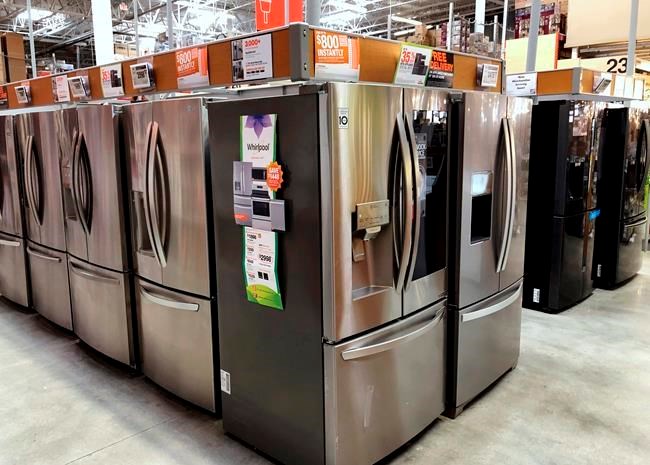A global shortage of computer chips, along with a surge in demand during the pandemic, has driven up prices of home appliances.
Guelph, Ont.,-based appliance company Danby said a shortage in supply can be seen in items such as freezers, microwaves, fridges and other appliances that use chips.
"Believe it or not, there's almost no appliances made that doesn't have microchips," said Danby CEO Jim Estill.
The chip shortage has exacerbated already inflated prices caused by increased demand during the pandemic from increased use and a rise in home renovations said Estill, noting that consumer spending during the pandemic has switched to goods from from services.
"Everybody's cost is going up, so [producers and manufacturers are] increasing their prices to the retailers and the retailers are increasing the prices to the consumers," he said.
However, most consumers don't know how much appliances cost and might not notice the price inflation, said Estill.
"If I told you freezers [cost] $439, you'd check and make sure that all freezers are $439. So yeah, that's in line and you buy it, what you wouldn't know is last year it was $379," he said.
The CEO noted that the microchip shortage has only impacted the industry fairly recently and has only started to ripple through the appliance supply chain.
"The supply chain is as close to a year by the time you place your orders with suppliers and get your parts and make a product," he said.
With the shortage of supply and the difficulty to meet increased demand, some people would end up substituting products, for example, buying smaller freezers in place of larger ones, Estill added.
Meanwhile, Lowes Canada said the shortage mostly affects the supply of gas ranges in its stores.
Spokeswoman Valérie Gonzalo said the situation varies depending on the level of complexity of the technology in products, adding that products that rely heavily on technology are more affected.
The global chip shortage is also being felt by automakers and tech manufacturers, in some cases forcing a drop in production.
The Retail Council of Canada wants to see appliance retailers receive similar support from the government as other industries experiencing an impact from the shortage, similar to the auto sector.
The pandemic has made people realize that home appliances are much more essential than previously thought, said council president Diane Brisebois.
"We're simply asking for fair (allocation) of the supply of those materials across industry sectors so we can ensure that Canadians are getting the products that they need when they need them," said Brisebois.
Lowe's said some of its vendors were affected by the shortage, but it is well-positioned to meet inventory challenges.
Product shortages have improved since last year, Gonzalo said, when the initial pandemic lockdown triggered a slowdown at production plants and created significant supply-chain shortages.
This report by The Canadian Press was first published May 12, 2021.
This story was produced with the financial assistance of the Facebook and Canadian Press News Fellowship.
Denise Paglinawan, The Canadian Press



